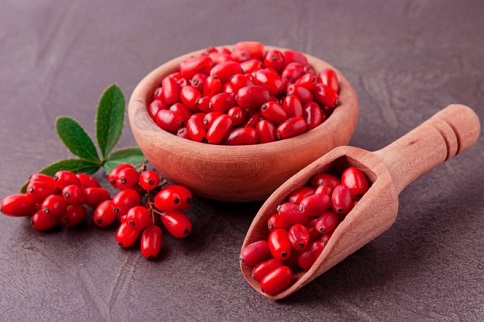Thailand medical study finds that Berberine offers hope for sepsis induced kidney injury in elderly patients
Nikhil Prasad Fact checked by:Thailand Medical News Team Nov 15, 2024 1 year, 2 months, 4 weeks, 19 hours, 35 minutes ago
Thailand Medical:
The Growing Threat of Sepsis-Associated Kidney Injury
Sepsis, a life-threatening condition triggered by a systemic response to infection, remains one of the most serious challenges in modern healthcare. Among its complications, sepsis-associated acute kidney injury (SA-AKI) is particularly devastating, especially for elderly patients. Studies reveal that over 60% of sepsis cases occur in individuals over the age of 65, with nearly half of these patients succumbing to the condition. Those who survive often face long-term kidney damage or progression to chronic kidney disease.
 Thailand medical study finds that Berberine offers hope for sepsis induced kidney
Thailand medical study finds that Berberine offers hope for sepsis induced kidney
injury in elderly patients
Conventional treatments for SA-AKI primarily rely on supportive measures like fluid resuscitation and renal replacement therapy (RRT). However, these interventions do little to address the root causes of kidney damage. This has prompted researchers to seek alternative therapeutic strategies that target the underlying mechanisms of SA-AKI. A promising candidate is berberine (BBR), a natural compound known for its anti-inflammatory, antioxidant, and mitochondrial protective properties.
Study Explores Berberine’s Protective Role
Researchers from Chiang Mai University and the University of Phayao, Thailand, embarked on a study to evaluate the potential of berberine in preventing SA-AKI. Using aged rats as models - representing elderly humans - they induced sepsis through a procedure called cecal ligation and puncture (CLP), which closely mimics the complex pathophysiology of human sepsis.
This
Thailand Medical News report highlights how berberine alleviated kidney damage, preserved mitochondrial function, and suppressed inflammatory pathways in the rats, providing evidence of its therapeutic potential.
Key Findings from the Study
The study revealed several critical insights into how berberine combats SA-AKI:
-Improvement in Kidney Function
Rats with induced sepsis showed significant increases in markers of kidney dysfunction, including blood urea nitrogen (BUN), creatinine, and neutrophil gelatinase-associated lipocalin (NGAL). However, those pretreated with berberine experienced marked reductions in these markers, suggesting better kidney function. The protective effects were observed with both low (25 mg/kg) and high (50 mg/kg) doses of berberine.
-Reduction of Histopathological Damage
Histological analysis revealed severe kidney damage in untreated septic rats, including tubular dilation, loss of the brush border, tubular obstruction, and inflammatory infiltration. Pretreatment with berberine significantly mitigated these changes, preserving kidney structure and reducing the extent of injury.
-Control of Oxidative Stress
Oxidative stress, a major driver of SA-AKI, was signif
icantly reduced in berberine-treated rats. Elevated levels of malondialdehyde (MDA), an indicator of oxidative damage, were lowered, while levels of the antioxidant glutathione (GSH) were restored, highlighting berberine’s role in counteracting oxidative injury.
-Mitochondrial Protection
Mitochondrial dysfunction is central to the development of SA-AKI, as it exacerbates cellular energy failure and oxidative stress. In the untreated septic rats, mitochondrial membrane potential dissipated, and mitochondrial swelling and structural damage were evident under electron microscopy. Berberine preserved mitochondrial integrity, reduced reactive oxygen species (ROS) production, and restored mitochondrial energy regulation by upregulating proteins like AMPK and PGC-1α.
-Suppression of Inflammatory Pathways
Berberine’s anti-inflammatory properties were evident in its suppression of key signaling pathways. Western blot analysis revealed that untreated rats had elevated levels of TLR4/NF-kB and NLRP3 inflammasome activation, which are major contributors to the inflammatory cascade in sepsis. Berberine inhibited these pathways, reducing the production of pro-inflammatory cytokines like TNF-alpha and IL-1β.
The Mechanisms Behind Berberine’s Effects
Berberine’s multifaceted action can be attributed to its ability to target critical molecular pathways:
-TLR4/NF-kB Pathway: Toll-like receptor 4 (TLR4) detects infection-associated molecules and triggers NF-kB, a protein complex that promotes inflammation. Berberine’s suppression of this pathway reduced the production of inflammatory molecules.
-NLRP3 Inflammasome: This pathway is activated by cellular stress and damage, leading to the release of inflammatory cytokines. Berberine inhibited NLRP3 activation, curbing inflammation at its source.
-Mitochondrial Biogenesis: By upregulating AMPK and PGC-1α, berberine promoted the generation of healthy mitochondria, restoring energy production and reducing oxidative stress.
-Antioxidant Action: Berberine neutralized reactive oxygen species (ROS), breaking the vicious cycle of oxidative stress and cellular damage.
The Implications for Human Health
The findings from this study are highly encouraging, particularly for elderly patients who are most vulnerable to sepsis and its complications. By addressing the root causes of kidney damage - oxidative stress, inflammation, and mitochondrial dysfunction - berberine offers a comprehensive approach to managing SA-AKI. Its natural origin and broad safety profile make it a viable candidate for future clinical trials.
While current treatments for SA-AKI focus on symptomatic relief, berberine could represent a paradigm shift by directly targeting the underlying disease mechanisms. Moreover, its potential to complement existing therapies like RRT or vasopressors could enhance patient outcomes.
Study Limitations and Future Directions
Despite its promising results, the study has limitations. For instance, only male rats were used, leaving potential sex-specific effects unexplored. Additionally, while berberine’s benefits were observed across doses, a more detailed investigation into its pharmacokinetics and optimal dosage is necessary.
Future research should also evaluate berberine’s effectiveness in human clinical trials, particularly in elderly patients with sepsis. Exploring its combination with standard therapies could provide further insights into its therapeutic potential.
Conclusion
This study underscores the transformative potential of berberine in combating sepsis-induced kidney injury. By targeting inflammation, oxidative stress, and mitochondrial dysfunction, berberine offers a holistic approach to managing SA-AKI. Its effectiveness in an aged rat model paves the way for future clinical applications, particularly for elderly populations who face a high risk of sepsis-related complications.
The study findings were published in the peer-reviewed journal: Antioxidants.
https://www.mdpi.com/2076-3921/13/11/1398
For the latest Medical Research news, keep on logging to
Thailand Medical News.
Read Also:
https://www.thailandmedical.news/news/thailand-medical-study-reveals-plant-extract-formula-as-potential-relief-for-long-covid
https://www.thailandmedical.news/news/thailand-medical-study-finds-high-dose-of-sulbactam-with-colistin-lowers-mortality-in-deadly-pneumonia
